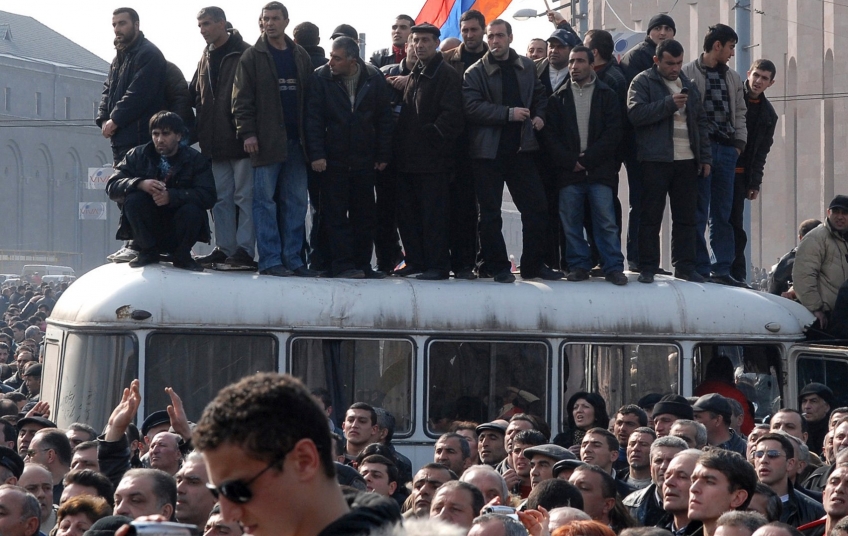According to the famous English writer George Orwell, the one who controls history, controls the future. Orwell had in mind that writing of a history contained a political context: whoever writes history formulates the legitimacy of his power.
Writing a history in politics is very important. The elite of nations fighting for independence justifies the historical right to struggle for independence; in Soviet times, history was based on the “historical” class struggle; history in our neighboring Azerbaijan is being written to justify the fact that they are a nation with a history of many thousands of years and possessing historical rights in this region.
Rewriting history is one of the most important parts of political activity. New nations and new states were born as a result of a particular history. This rewriting also brings other undertones: for example, when the political elite collapses and partially discredits its competitors in order to justify its right to power.
The new government of Armenia is trying to retell its version of the history of the recent past: the one who sets the story belongs to the future, therefore he will be the “white” one, and the rest will be “blacks." This has become the main arena of the current struggle for power.
The struggle for the right to rewrite history in Armenia began with the case of “March 1,” and it is no accident that this process became the center of the political struggle. In fact, the struggle is not about the new principles of state development that the revolution was supposed to bring, but for the sake of the legitimacy of some political elites at the expense of others. In fact, the legitimacy of the government is not based on new values, on the anchor of “New Armenia”, but on the tragic events of 2008.
The thesis “New Armenia” should have been understood as follows: we turn the page of history and form new relations, but, based on the fact that all politics is based on the events of 2008, the new government returned us to Old Armenia, and it became one of the conflicting parties itself. The whole propaganda machine of the government is aimed at proving the righteousness of one of the militant sides of “Old Armenia”, recomposing the story and punishing the other side.
This casts doubt on the legitimacy of the current government, because people voted for “New Armenia,” and not for one of the parties in the political struggle of “old Armenia.” It turns out that the people who voted for New Armenia were misled.
Time will show where this misunderstanding will lead us to.





